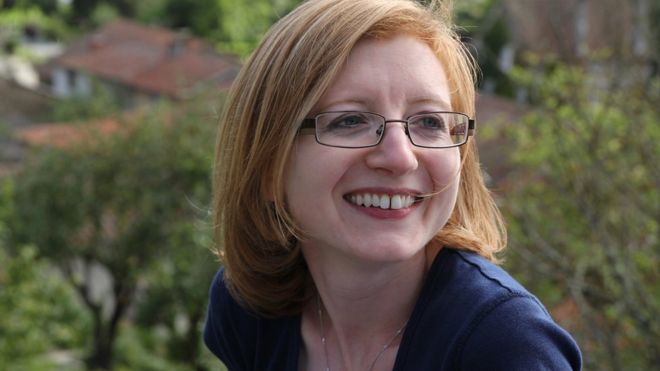
It’s the university application season – with the first wave of deadlines, including Oxford and Cambridge, coming this week.
The anxious process will have seen teenagers visiting university open days and worrying about personal statements on their application forms.
For some of the most competitive courses there are also interviews.
Oxford, keen to demystify its admissions process, has published the type of questions students might face.
“Interviews will be an entirely new experience for most students, and we know many prospective applicants are already worried about being in an unfamiliar place and being questioned by people they have not met,” says director of admissions Samina Khan.
In an attempt to make it less intimidating the university has produced a video explaining how the interview works.
And it has published some sample questions – and suggestions for how students might have answered.
- What makes a novel or play “political”?
This was a question for a French course. Interviewer Helen Swift, from St Hilda’s College, said:
“This is the sort of question that could emerge from a student’s personal statement, where, in speaking about their engagement with literature and culture of the language they want to study, they state a keen interest in works (such as a novel, play or film) that are “political”.
“We might start off by discussing the specific work that they cite (something that isn’t included in their A-level syllabus), so they have chance to start off on something concrete and familiar, asking, for instance, “in what ways?”, “why?”, “why might someone not enjoy it for the same reason?”.
“We’d then look to test the extent of their intellectual curiosity and capacities for critical engagement by broadening the questioning out to be more conceptually orientated and invite them to make comparisons between things that they’ve read/seen (in whatever language).
“So, in posing the overall question, ‘What makes this political?’ we’d want the candidate to start thinking about what one means in applying the label: what aspects of a work does it evoke? Is it a judgement about content or style? Could it be seen in and of itself a value judgement? How useful is it as a label?
“What if we said that all art is, in fact, political? What about cases where an author denies that their work is political, but critics assert that it is – is it purely a question of subjective interpretation?
“A strong candidate would show ready willingness and very good ability to engage and develop their ideas in conversation. It would be perfectly fine for someone to change their mind in the course of the discussion or come up with a thought that contradicted something they’d said before – we want people to think flexibly and be willing to consider different perspectives…
“Undoubtedly, the candidate would need to take a moment to think in the middle of all that – we expect that “ermmm”, “ah”, “oh”, “well” will feature in someone’s responses!”
- About one in four deaths in the UK is due to some form of cancer, yet in the Philippines the figure is only around one in 10. What factors might underlie this difference?
This was a question for medicine. Interviewer Chris Norbury, from Queen’s College, said:
“This is a typically open question, with no single ‘correct’ answer, which aims to stimulate the sort of discussion that might be encountered in a tutorial teaching session.
“The discussion could take any one of a number of directions, according to the candidate’s interests. Some candidates will ask useful clarifying questions, such as, ‘Where do these data come from, and how reliable are they?’ or “What is the average life expectancy in these parts of the world?”
“Some candidates will seize on the idea that various aspects of the typical lifestyle in the UK are inherently unhealthy, which can make for an interesting discussion in itself. Others, especially if they appreciate that life expectancy in the Philippines is substantially lower than in the UK, will realise that other causes of death are more common in the developing world, and that this is the major factor that gives rise to the difference alluded to in the question.
“This probes selection criteria including problem-solving, critical thinking, intellectual curiosity, communication skills, ability to listen and compatibility with the tutorial format.”
- What exactly do you think is involved in blaming someone?
This was a question for philosophy, politics and economics, and interviewer Ian Phillips, from St Anne’s College, said:
“Questions like this help draw out a candidate’s ability to think carefully and precisely about a familiar concept, evaluating proposals, coming up with counter-examples, disentangling considerations, and being creative in proposing alternative approaches.
“Obviously the notion of blame is an important one in moral theory but insofar as blame is an emotional attitude it also brings in issues in the philosophy of mind. Debates about the nature of blame are going on right now in philosophy so the question is also partly a prompt for doing some philosophy together – which is exactly what we hope to achieve in a tutorial.
“With a question like this we’re not looking for a right answer but instead whether the candidate can be creative in coming up with examples and suggestions, and can think critically and carefully through their implications…
“Good interviews will often generate all kinds of interesting and revealing discussions that show a candidate’s ability for analytical thought: for example about self-blame, cases of blame where the blamer knew the blamed had done nothing wrong, and indeed cases of blaming something inanimate (such as a faulty printer or phone).”
- Imagine a ladder leaning against a vertical wall with its feet on the ground. The middle rung of the ladder has been painted a different colour on the side, so that we can see it when we look at the ladder from the side on. What shape does that middle rung trace out as the ladder falls to the floor?
This was a question for maths and interviewer Rebecca Cotton-Barratt, from Christ Church, said:
“This question tests whether you can do what mathematicians do, which is to abstract away all the unimportant information and use mathematics to represent what’s going on.
“I’d initially ask the candidate what shape they think will be formed, and then ask them how they can test this hypothesis. They might initially try sketching the ladder at different stages – this is fine, but ultimately what we want is something that we can generalise and that is accurate (you can’t be sure that your drawing is that accurate, particularly when you’re making a sketch on a whiteboard and don’t have a ruler).
“So eventually they will fall back on maths, and try to model the situation using equations. If they get stuck we would ask them what shape the ladder makes with the wall and floor, and they’ll eventually spot that at each stage the ladder is forming a right-angled triangle.
“Some might then immediately leap to Pythagoras’ Theorem and use that to find the answer (which is that it forms a quarter circle centred on the point where the floor meets the wall).”
- A large study appears to show that older siblings consistently score higher than younger siblings on IQ tests. Why would this be?
This was a question for experimental psychology. Interviewer Kate Watkins of St Anne’s College said:
“This is a question that really asks students to think about lots of different aspects of psychology, and we guide students when discussing it to think about both scientific factors such as maternal age (mothers are older when younger siblings are born – could that play a role?) and observational analysis about how birth order might affect behaviour and therefore performance on IQ tests.
“It’s a great question because students begin from the point they are most comfortable with, and we gradually add more information to see how they respond: for example, noting that for example the pattern holds true even taking into account things like maternal age.
“This can lead them to think about what the dynamics of being an older sibling might be that produce such an effect – they might suggest that having more undivided parental attention in the years before a sibling comes along makes a difference, for example.
“Then we introduce the further proviso that the effect isn’t observable in only children – there is something particular to being an older sibling that produces it. Eventually most students arrive at the conclusion that being an older sibling and having to teach a younger sibling certain skills and types of knowledge benefits their own cognitive skills (learning things twice, in effect).
“But there isn’t really a “right” answer and we are always interested to hear new explanations that we haven’t heard before.”
[Source:- BBC]







